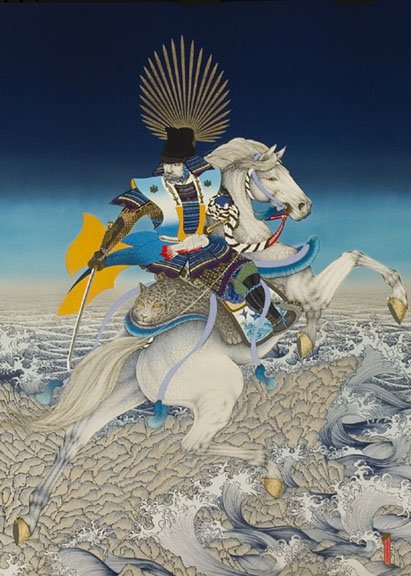Our plan to “reform” (remodel) our house in Japan is continuing apace, as we prepare to redo our bath area, enlarge our living room slightly and make the downstairs more “barrier free” for my wife’s elderly parents. As is the practice here, we made sure to start the bath part of the construction on one of the “lucky days” according to a Buddhist calendar designated for this purpose. This is especially important because mizu-mawari (parts of the house related to water) have a lot to do with a family’s good luck, for reasons that are beyond this poor gaijin’s ability to comprehend. The construction is being done by Japanese carpenters who are coincidentally called “dykes” (daiku). One of the rules about getting any kind of contracting work in Japan done is, you’re supposed to bring the workers drinks and cakes at 10 am and 3 pm, which helps to help ensure they do a good job on our house.
There’s no doubt about it: sometimes Japan can really throw you for a loop. Like the occasional intersection that will show drivers a red light along along with green arrows pointing left, right and up, guaranteeing confusion for everyone. Then there’s this Japanese friend of mine who loves old American World War II movies set in the Pacific theatre, despite the presumably negative light these films put the Japanese in — and ditto for fans of Breakfast at Tiffany’s, which features an embarrassingly stereotyped Japanese character played by Mickey Rooney. Japanese sometimes choose names that we’d never consider using in the West, like the rock band Yellow Monkey or the popular talent agency Yellow Cab. The Japanese are a very polite people, and it’s actually possible to hear a fight between an older person (senpai) and his underling (kohai) in which the younger person is using polite speech even while he yells at the top of his lungs. Finally, one of the oddest things I’ve seen all week: Astro Boy’s Japanese name is Tetsuwan Atom, literally “Iron-Armed Atom” (which I knew), but it turns out his sister Astro Girl’s name in Japanese is Uran, which means “uranium.” When I heard this it seemed like some kind of twisted, black joke, coming just seven years after the bombing of Hiroshima, but if the Japanese are okay with the names, I guess it’s okay with me.
Taking citizenship of another country is a very special thing — it means that you’ve accepted the language, history, culture and values of your adopted nation and are willing to be counted as one of their number for the rest of your life. Although it’s one of the most homogeneous places on Earth, foreigners may take Japanese nationality if they meet certain reasonable requirements, including having lived in Japan continuously for five years and having at least basic ability in the language. Athletes often take Japanese citizenship for one reason or another, such as the Hawaiian or Mongolian sumo wrestlers or Brazilian soccer player Alessandro Santos, and the richest man in Japan is a naturalized citizen, too, Yahoo Japan mogul Masayoshi Son, of Korean descent. I’m often asked by J-List customers if I’ve gotten my Japanese citizenship yet, and I tell them no, I’m quite happy with the permanent residence status I’ve got now. I’d like to extend congratulations to Carlos, the hardworking J-List employee in our San Diego office who hand prints our cool Japanese T-shirts and hoodies. He’s worked very hard to get his U.S. citizenship over the past five years, and today he officially becomes an American citizen.















